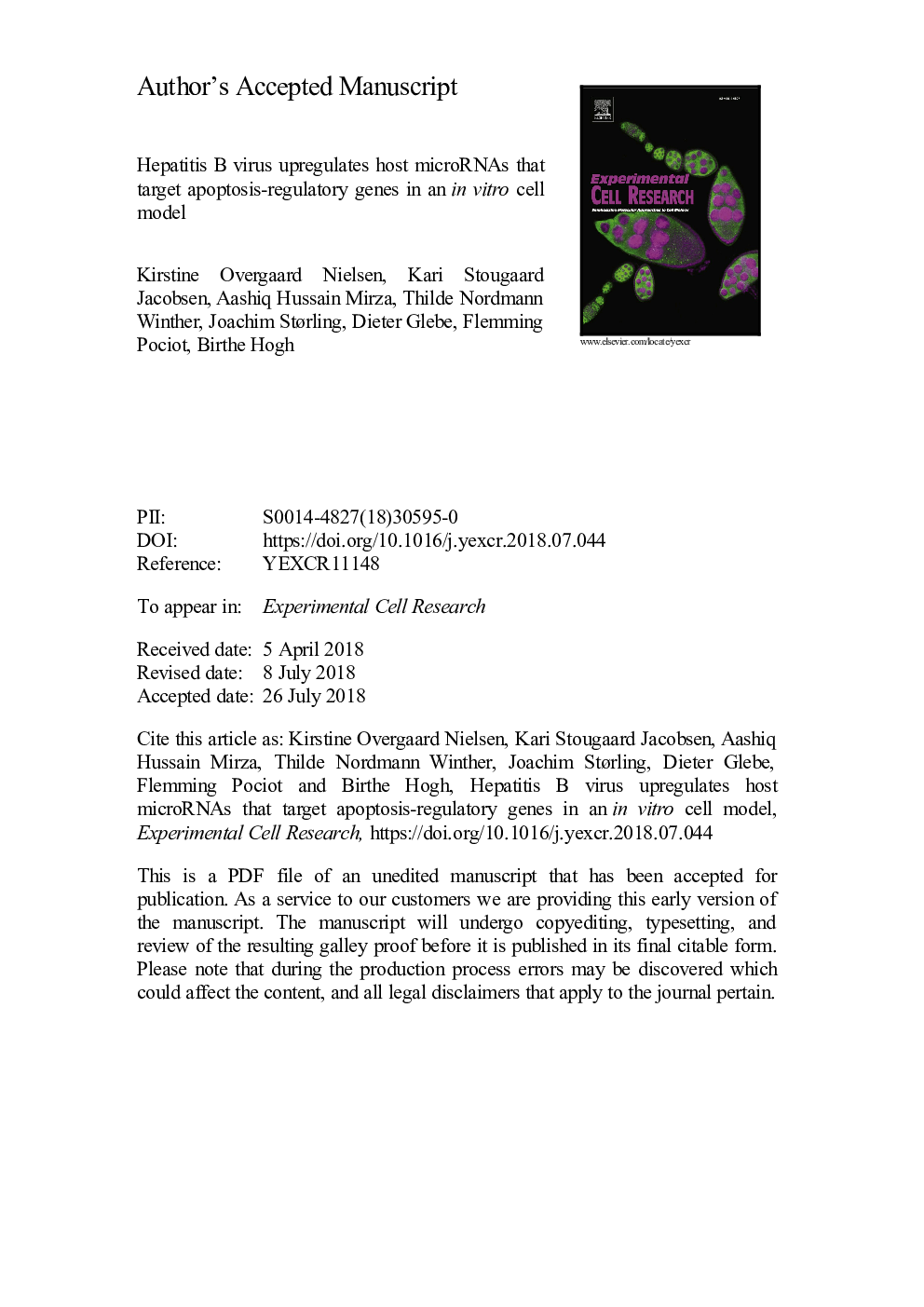| Article ID | Journal | Published Year | Pages | File Type |
|---|---|---|---|---|
| 8962159 | Experimental Cell Research | 2018 | 39 Pages |
Abstract
Chronic hepatitis B (CHB) infection increases the risk of developing severe liver disease including cirrhosis and hepatocellular carcinoma (HCC). As microRNAs may modulate host - virus interactions, we here investigated if hepatitis B virus (HBV) infection modulate microRNA expression using an in vitro HepG2 cell model system with inducible HBV replication. We found that HBV replication was associated with upregulation of miR-192-5p, miR-194-5p and miR-215-5p, of which miR-192-5p and miR-215-5p have identical seed sequences. Bioinformatics analyses revealed a significant enrichment of potential target genes involved in apoptosis signaling of all three microRNAs. In line with this, transfection with a mimic of miR-192-5p suppressed the protein level of pro-apoptotic BIM and reduced endoplasmic reticulum (ER) stress-induced apoptosis in HepG2 cells. In contrast, transfection with a mimic of miR-194-5p downregulated the anti-apoptotic proteins SODD and cFLIP, and sensitized HepG2 cells to both ER stress- and cytokine-induced apoptosis. In conclusion, our study suggests that HBV upregulates the expression of miR-192-5p and miR-194-5p in the host cell. These microRNAs target important apoptosis-regulatory proteins, and may thus contribute to the development of HBV-related liver disease.
Keywords
HBSsilencer of death domainsSODDmiR-194HBV X proteincellular FLICE-inhibitory proteincFLIPCHBHBxThapsigarginHepG2HCCmitochondrial outer membrane permeabilizationNon-coding RNAtumor necrosis factor alphaApoptosisendoplasmic reticulumTNF-αMOMPchronic hepatitis BHBVhepatitis B virusHepatocellular carcinoma
Related Topics
Life Sciences
Biochemistry, Genetics and Molecular Biology
Cancer Research
Authors
Kirstine Overgaard Nielsen, Kari Stougaard Jacobsen, Aashiq Hussain Mirza, Thilde Nordmann Winther, Joachim Størling, Dieter Glebe, Flemming Pociot, Birthe Hogh,
